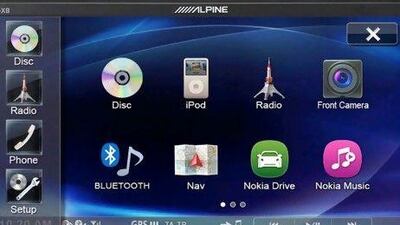Our latest technology test seemed simple enough: get into a four-wheel-drive vehicle, activate a new GPS device and see whether it accurately guided us to our destination in Dubai.
But when it comes to navigating through parts of the UAE, rarely is it ever this easy.
Roads are constantly changing as construction continues throughout the Emirates. Overpasses can momentarily block signals from the satellites that form the Global Positioning System. The signal interruptions can confuse a satellite navigation device, causing it to warn annoyingly that it is "recalculating". And some providers of digital maps, including Navteq, which supplied our device's data, release updates only once a quarter.
All of this helps to explain some of the quirks that we encountered while testing Alpine Electronics' ICS-X8, which is slated to be released in the UAE in the first quarter of next year for Dh3,999 (US$1,088).
While we reached our destination six minutes faster than the device first predicted, it was only because our driver occasionally hit 80kph instead of the posted 60 and stopped listening to directions partway through the journey. At one cluttered road-construction site, the system told us to take the third exit on the roundabout - even though there was no roundabout in sight.
It turns out it was demolished just a couple of weeks ago.
For the most part, though, the device worked well, and map visuals were quite clear. A helpful feature shows upcoming roads in green, amber or red depending on how much traffic lies ahead.
But this satellite navigator relies on MirrorLink, a technology that syncs it through a cable to a limited number of Nokia smartphones - but not yet to other brands of smartphones. Drivers can access certain apps on their mobiles, including music files. They can also use a Bluetooth connection to answer calls without having to hold a handset. Of course, drivers who forget their mobiles at home are out of luck if they want navigation advice.

